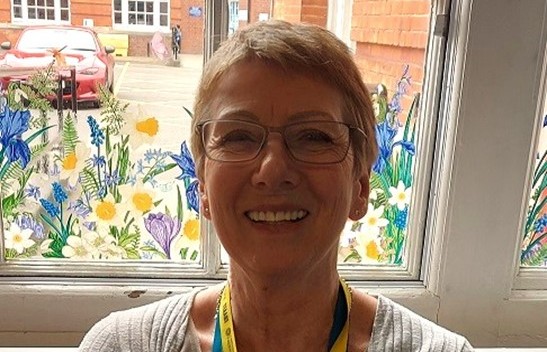Gwen Thomas is one of the Disability and Dyslexia Coordinators at the University of Greenwich and is based on the Medway campus.
Her long career includes working in all sectors of education, from Nursery to University, initially teaching in primary schools before becoming a teacher and assessor of Specific Learning Difficulties and then an adviser in SpLD.
Gwen is delighted to be part of the Student Wellbeing Service at the University of Greenwich, which supports all students in the university. The teams included in Wellbeing are Disability and Dyslexia; Mental Health; Counselling; Psychological Wellbeing; Sport and Physical Wellbeing and STAART.
STAART is unique to the University of Greenwich and is an organisation run by and for disabled students that include social networking and activities promoting mental and physical wellbeing.
Here we find out more about Gwen’s role:
“I am proud to be part of a really supportive team, the aim of which is to ensure that all students receive the support that they need to enable them to demonstrate their abilities during their university course – and beyond.
We support students to become resilient, independent learners and people, throughout their whole student journey with us, from prospective student to graduate.
We support students with:
- physical and/or mobility difficulties; visual difficulties; are deaf or hard of hearing,
- specific learning disabilities, such as dyslexia, ADHD and ASD.
- a mental health condition such as anxiety or depression
- long-term medical conditions (longer than 12 months).
Before a student begins their course, we have meetings to discuss support in order to have it in place when they arrive. Alongside the student, I write a Greenwich Inclusion Plan which states reasonable adjustments that will be put in place for them. Adjustments can include exam arrangements, a practical assistant in the lab, changes in the timetable to reduce transition time, and access to lecture recordings.
What I love about my job is that it is so varied. Each day is different to the next – I work with students of all ages and abilities and meet them face-to-face, on the phone, or online. I meet with colleagues to discuss and arrange support, liaise with outside agencies, attend events, and present information on the Student Wellbeing Service to various groups within and outwith the university. I raise awareness of disability throughout the university – for example during Dyslexia Awareness week, I posted articles, links to websites, and information on how to support dyslexic students, as well as the superpowers of people with dyslexia!
I do screenings with students who think they may have a learning difference or are neurodivergent, I also support students through the process of screening to apply for the Disabled Students Allowance. If a student needs further support, I signpost them to the right team, such as counselling or mental health.
Another aspect of my job is to support students with study skills. I learn so much! The students I work with come from different disciplines and study a variety of subjects, for example, chemistry; biomedical science, teaching and education (OK, I know a bit about this already!); paramedic science; and mathematics. Each student is unique, with their own set of skills and difficulties, and it is a pleasure to work with them. We investigate research skills, writing skills and revision techniques. Students often have devised their own strategies to support their learning, and this is where I also learn. It is very satisfying to be able to pass tips on to others – and to use them myself. Did you know, if you read the first paragraph and the last paragraph of a chapter it will tell you what the whole chapter is about?
We seek student feedback in order to improve our service and I am pleased to relate that the Student Wellbeing Service has frequently won student-led teaching awards.
As I said before – I love my job, it is fun, interesting and rewarding, and I am proud to be a part of the award-winning Student Wellbeing Service at the University of Greenwich.”
For more information about Disability support, visit the University of Greenwich website.
Learn more about STAART.

